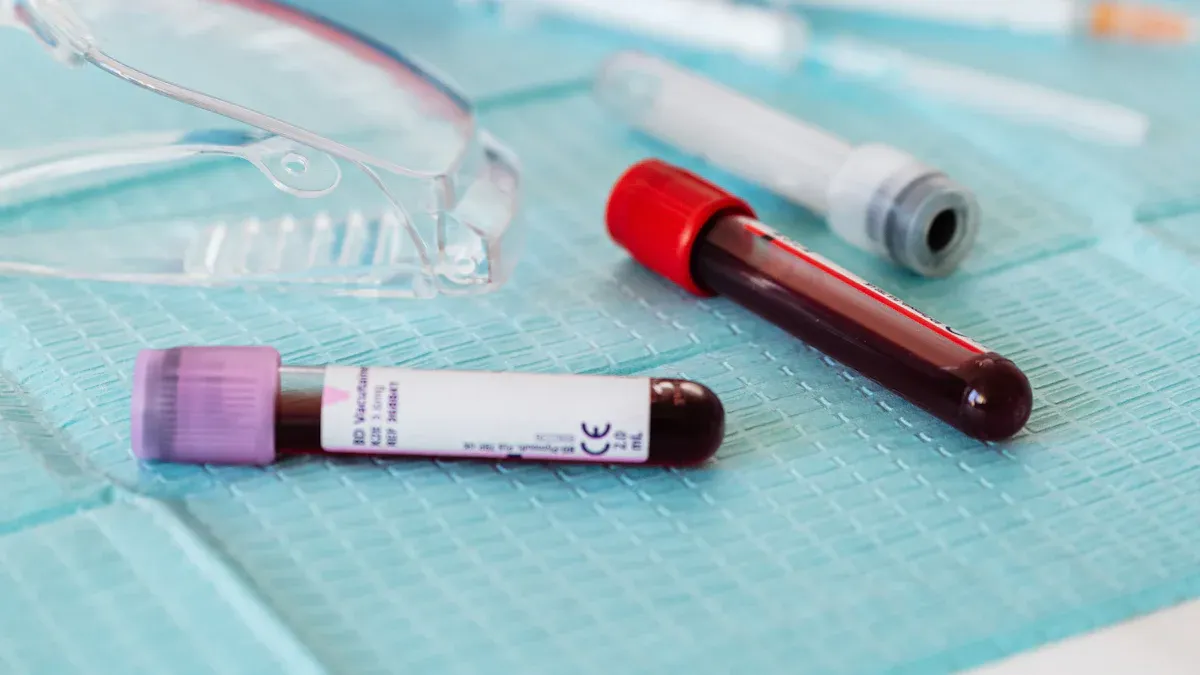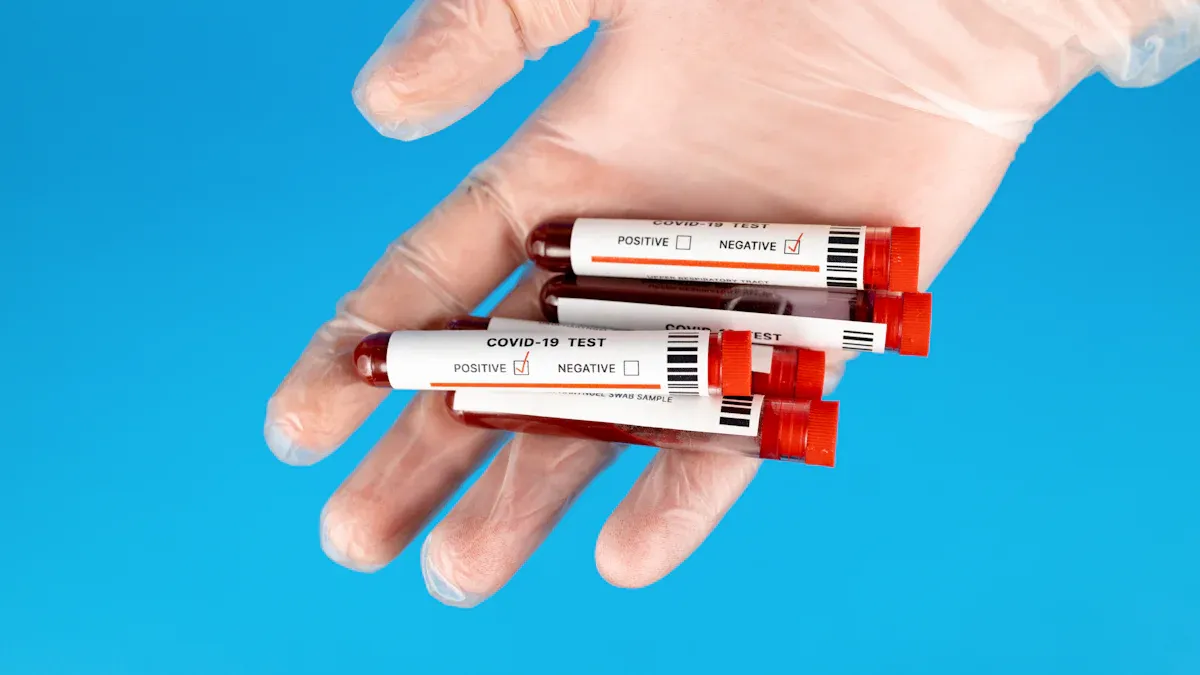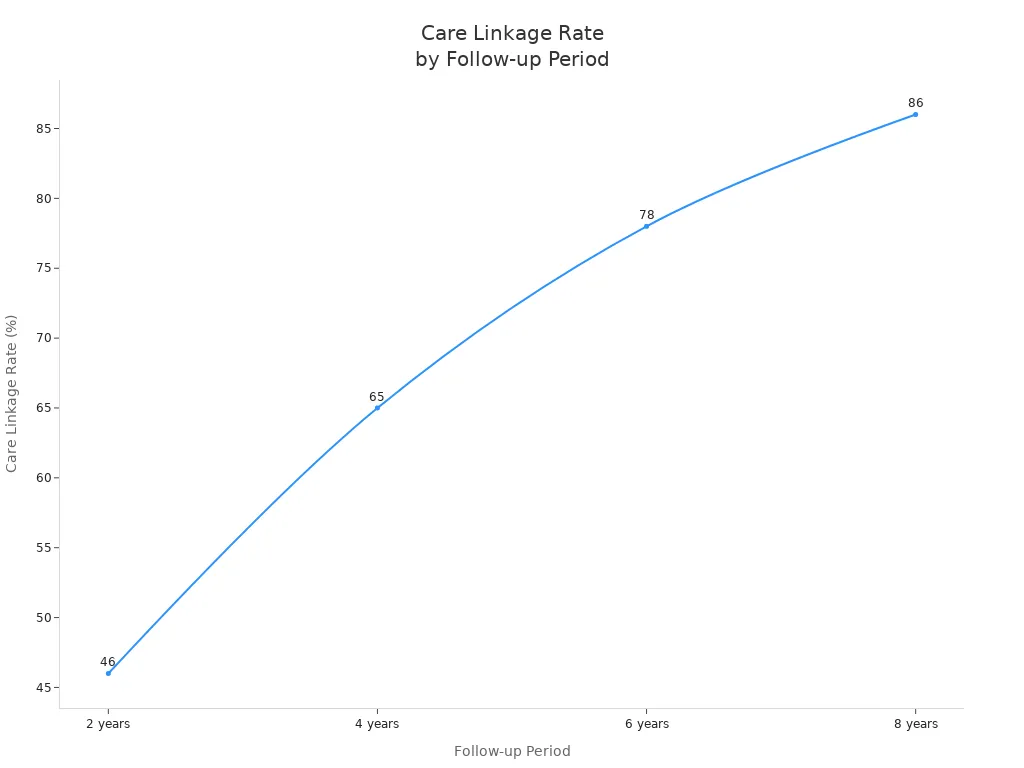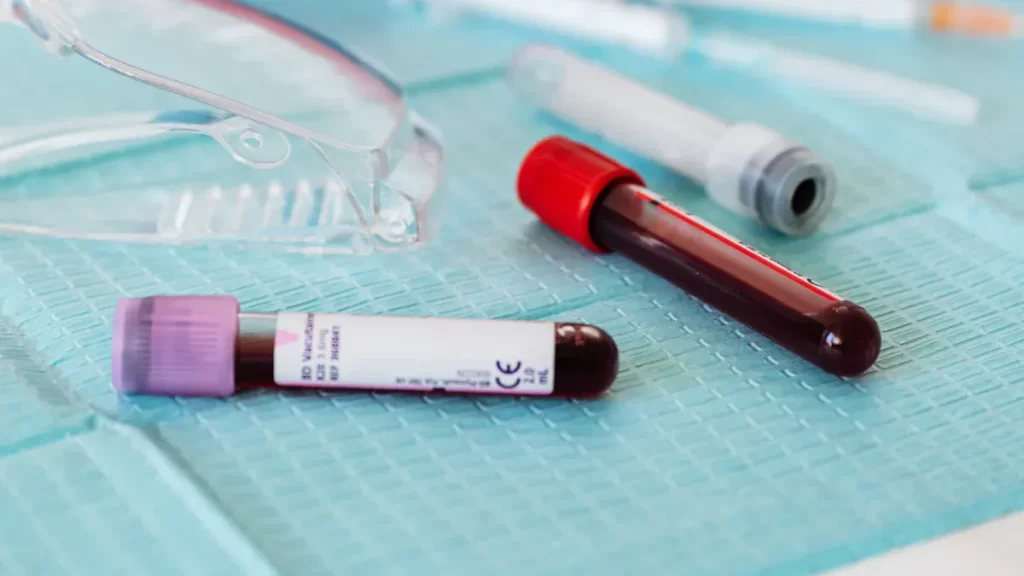News & Events
Understanding Hep B Antibody Results for Better Health

Many people feel unsure when they look at their hepatitis B blood test results. You might notice that doctors sometimes do not explain these results clearly, leaving you with questions. Quick visits often mean you do not get enough time to ask about your hep b antibody status.
- Widespread confusion exists about interpreting hepatitis B blood test results.
- Many people report that their healthcare providers did not explain their results well.
- Short appointments can leave important questions unanswered.
You are not alone. In 2022, hepatitis B affected millions of people worldwide:
| Year | Number of Individuals Affected by Hepatitis B |
|---|---|
| 2022 | 254 million |
Learning what your results mean helps you make smart choices and talk with your doctor confidently.
Key Takeaways
- Understanding your hepatitis B test results empowers you to make informed health decisions.
- Regular screening for hepatitis B is crucial for early detection and prevention of serious liver issues.
- Ask your doctor specific questions about your test results to clarify your health status and next steps.
- Know the meaning of key hepatitis B markers to better understand your infection status and immunity.
- Stay proactive about your health by monitoring your hepatitis B status and discussing any changes with your doctor.
Hepatitis B Blood Tests Overview

Main Tests for Hepatitis B
You may notice that hepatitis b blood tests include several markers. Each test gives you important information about your health. The three main tests used in hepatitis b screening are:
- HBsAg (Hepatitis B surface antigen): This test checks if you have an active hepatitis B infection. If HBsAg is present, you can spread the virus to others.
- Anti-HBs (Antibody to hepatitis B surface antigen): This test shows if you have protection against hepatitis B. A positive result means you are immune, either from past infection or vaccination.
- IgM anti-HBc (IgM antibody to hepatitis B core antigen): This test helps find out if you have a recent infection.
Doctors may also use other hepatitis b blood tests to monitor your liver and check for complications. Here is a table that shows some of these tests and what they measure:
| Test Name | Measures | Purpose |
|---|---|---|
| ALT or SGPT | Alanine aminotransferase in the blood | Monitors liver health and treatment response |
| HBeAg | Hepatitis B e-Antigen in the blood | Shows viral activity and infectiousness |
| AST or SGOT | Aspartate aminotransferase in the blood | Helps monitor liver damage |
| AFP | Alpha-FetoProtein in the blood | Screens for liver cancer in chronic hepatitis B patients |
| Bilirubin test | Amount of bilirubin in the blood | Assesses liver function and possible damage |
| Platelet count | Number of platelets in the blood | Indicates liver function and disease risk |
Why Screening Matters
Hepatitis b screening helps you and your doctor find out if you have the virus, if you are immune, or if you need more care. The CDC recommends that all adults in the United States get hepatitis b screening at least once in their life. You may need more frequent testing if you are at higher risk.
- You help prevent the spread of hepatitis B by getting screened.
- Hepatitis b screening finds people who need treatment or vaccination.
- Screening programs lower the number of new infections and reduce liver problems.
- Doctors use a triple panel for hepatitis b screening: HBsAg, anti-HBs, and total anti-HBc.
Tip: Early hepatitis b screening can protect your health and the health of others. It also helps doctors give you the right advice and care.
Screening is especially important for people in high-risk groups. These programs have shown that they can lower the number of new hepatitis B cases and prevent serious liver disease. When you take part in hepatitis b screening, you take a big step toward better health for yourself and your community.
Understanding Hep B Antibody Markers

HBsAg
You may see HBsAg on your hepatitis B blood test. This marker tells you if the hepatitis B virus is active in your body. If your HBsAg result is positive, you have an active infection and can spread the virus to others. Doctors use this marker to check for both new and long-term infections.
- A positive HBsAg result means:
- You have an active hepatitis B infection.
- You are contagious.
- The infection can be acute or chronic.
If your HBsAg result is negative, you do not have an active hepatitis B infection. You cannot pass the virus to others.
HBsAg usually appears in your blood about 1 to 9 weeks after exposure. Most people test positive around 4 weeks after getting infected.
| Source | Detection Timeframe |
|---|---|
| CDC | 1–9 weeks |
| WHO | 30–60 days |
| Average | ~4 weeks |
Anti-HBs
Anti-HBs is another important hep b antibody marker. This test shows if you have protection against hepatitis B. If your anti-HBs result is positive, you are immune. You may have gained this immunity from a past infection or from getting the hepatitis B vaccine.
- A positive anti-HBs result means:
- You have immunity to hepatitis B.
- You are protected from future infections.
- Immunity can come from recovery or vaccination.
If your anti-HBs result is negative, you do not have protection. You may need the hepatitis B vaccine to stay safe.
| Anti-HBs Titer Level | Immunity Status | Recommendation |
|---|---|---|
| ≥10 mIU/mL | Associated with immunity but not fully protective | Monitor for potential infection |
| >100 mIU/mL | Suggested higher protective level | Consider booster vaccination if below this level |
Tip: Ask your doctor about your anti-HBs titer level. A higher level gives you stronger protection.
IgM anti-HBc
IgM anti-HBc is a hep b antibody marker that helps doctors find out if you have a recent infection. If your IgM anti-HBc result is positive, you likely have acute hepatitis B. This marker appears early and helps doctors tell the difference between new and long-term infections.
| Result Type | Interpretation |
|---|---|
| Positive IgM anti-HBc | Indicates recent acute hepatitis B infection. |
Doctors use IgM anti-HBc to separate acute hepatitis B from chronic hepatitis B with flare-ups. The S/CO ratio of IgM anti-HBc is higher in acute cases, while HBV DNA levels are higher in chronic cases. IgM anti-HBc is the best marker for diagnosing acute hepatitis B. It shows up in almost all people with new infections and works better than HBsAg during the window period.
If your IgM anti-HBc is positive, you should talk to your doctor about next steps. You may need more tests to check your liver health.
Other Markers (HBeAg, IgG anti-HBc)
Doctors sometimes check other markers to learn more about your hepatitis B status. HBeAg shows how active the virus is and if you have a higher risk of liver damage. If your HBeAg is positive, you have more viral activity and a greater chance of complications like liver cirrhosis or cancer.
- HBeAg positivity means:
- Active viral replication.
- Higher risk of liver damage.
- Possible transition in immune status if anti-HBe antibodies are present.
IgG anti-HBc is another hep b antibody marker. If you test positive for IgG anti-HBc, you have been exposed to hepatitis B in the past. This marker can show up after recovery or during chronic infection. IgG anti-HBc does not mean you are immune from vaccination. Sometimes, isolated anti-HBc appears years after recovery, which may suggest a low-level or hidden infection.
- IgG anti-HBc indicates:
- Past exposure to hepatitis B.
- Recovery from acute infection or chronic infection.
- Not a marker of immunization.
Note: Your doctor may use these markers to decide if you need more tests or treatment. Understanding your hep b antibody results helps you take control of your health.
Interpreting Hepatitis B Results
When you receive your hepatitis B blood test results, you may feel confused by the different markers and what they mean for your health. You can use patterns in your results to understand your status and decide what steps to take next.
Positive and Negative Patterns
You often see combinations of positive and negative markers in your hepatitis B blood test results. Each pattern gives you clues about your infection status, immunity, or risk. You can use the table below to match your results and learn what they mean.
| Test Results | Interpretation |
|---|---|
| HBsAg negative, Anti-HBc negative, Anti-HBs negative | You are susceptible to hepatitis B. You should consider vaccination. |
| HBsAg negative, IgG anti-HBc positive, Anti-HBs positive | You are immune due to natural infection. You do not have viral antigen present. |
| HBsAg negative, Anti-HBc negative, Anti-HBs positive | You are immune due to vaccination. You have a good outcome after immunization. |
| HBsAg positive, IgG anti-HBc positive, IgM anti-HBc positive, Anti-HBs negative | You probably have acute hepatitis b infection. You show an early immune response. |
| HBsAg positive, IgG anti-HBc positive, IgM anti-HBc negative, Anti-HBs negative | You probably have chronic hepatitis B infection. You need further tests. |
| HBsAg negative, IgG anti-HBc positive, Anti-HBs negative | You may have a resolved infection. You should discuss vaccination options. |
You may notice that a positive blood test result for HBsAg usually means you have an active infection. If you see IgM anti-HBc positive, you likely have a new acute infection. When anti-HBs is positive, you have immunity, either from recovery or vaccination. Total anti-HBc shows past exposure, but does not appear after vaccination.
| Marker | Interpretation |
|---|---|
| HBsAg | Shows active infection, except for a short time after vaccination. |
| anti-HBs | Shows recovery from infection or immunity from vaccination. |
| Total anti-HBc | Shows past exposure to the virus, not seen after vaccination. |
You may see the word “acute” in your results. Acute means the infection is new and happening now. If you have a new acute infection, you need to talk to your doctor about treatment and monitoring. You may also see “chronic” in your results. Chronic means the infection has lasted more than six months.
Tip: Always check all your markers together. One marker alone may not give you the full picture.
Mixed Results
Sometimes your hepatitis B blood test results do not fit the common patterns. You may see mixed or unclear results. These can happen for several reasons.
- False-positive results for HBsAg may occur if you have certain tumors, such as basal cell carcinoma.
- Heterophilic antibodies can cause false-positive or falsely high results, especially in some immunoassays.
- Persistent heterophilic antibodies may come from infections like Epstein–Barr Virus, blood transfusions, or systemic diseases.
You may see a result that does not match your health history. You may have a new acute infection, but your markers do not show the expected pattern. You may have recovered from hepatitis B, but your anti-HBs is still negative. You may have a positive IgM anti-HBc, but no symptoms of acute hepatitis b infection.
If you see mixed results, you should:
- Ask your doctor to repeat the test. Sometimes errors happen in the lab.
- Share your medical history with your doctor. Past infections or treatments may affect your results.
- Request additional tests, such as HBV DNA or liver function tests, to get a clearer picture.
- Avoid making decisions based on one result. Always look at the full set of results.
Note: Mixed results do not always mean you have hepatitis B. You may need more tests to confirm your status.
You may feel worried when you see unclear results. You can take control by asking questions and working with your healthcare provider. You may need to monitor your results over time, especially if you have risk factors for hepatitis B.
You may see the word “acute” many times in your results. Acute hepatitis b infection means you have a new infection. You may need treatment and close follow-up. If you see a new acute infection, you should act quickly to protect your liver health.
You may see results that change over time. You may start with an acute infection, then move to recovery or chronic infection. You should keep track of your results and talk to your doctor about any changes.
Callout: If you have questions about your hepatitis B results, write them down before your next appointment. You can use your results to guide your conversation and make informed choices.
Hepatitis B Diagnosis and Next Steps
When to Seek Further Testing
You may need more tests after your first hepatitis b diagnosis. Doctors use extra tests to check your hepatitis b status and see if you have chronic hepatitis b infection. You should ask for further testing if you have signs of liver problems, a family history of liver cancer, or if you already had a past hbv infection. You may also need more tests if you have symptoms of advanced liver disease or if you started or finished antiviral therapy.
Doctors often order tests like HBV DNA and ALT to help with hepatitis b diagnosis and monitoring. HBV DNA shows how much virus is in your blood. ALT checks for liver damage. You should get HBV DNA testing if your ALT level goes up. Doctors recommend monitoring ALT every three months during the first year and every six to twelve months after that if you have chronic hepatitis b infection and do not get treatment.
| Evidence Type | Recommendation |
|---|---|
| ALT Monitoring | Monitor ALT levels every three months during the first year and every six to 12 months thereafter for chronic hepatitis B patients not currently treated. |
| HBV DNA Testing | Perform HBV DNA testing if ALT levels become elevated. |
You should seek further hepatitis b diagnosis and monitoring if you want to:
- Check your liver health
- Look for cirrhosis
- Screen for liver cancer
- Review past evaluations for cirrhosis
- Ask about antiviral therapy
- Watch for signs of advanced liver disease
Monitoring Chronic Hepatitis B
Regular monitoring helps you manage chronic hepatitis b infection and lowers your risk of serious problems. You need to keep track of your hepatitis b status and get tests often. Doctors recommend monitoring every six months for people with chronic hepatitis b infection, especially if you have cirrhosis, a family history of liver cancer, or hepatitis D.
| Monitoring Recommendations | Frequency | At-Risk Populations |
|---|---|---|
| Regular check-ups | Every 6 months | All HBsAg+ persons with cirrhosis, family history of HCC, hepatitis D, Asian or African American men >40, Asian women >50 |
| Blood tests for hepatitis B markers | Every 6 months | All children, teens, and adults with chronic hepatitis B |
| Imaging studies (ultrasound ± AFP) | Every 6 months | All HBsAg+ people with chronic hepatitis, cirrhosis, or family history of HCC |
If you do not get treatment, you should have monitoring every three to six months. If you start antiviral therapy, doctors check your hepatitis b infection and hepatitis b diagnosis every one to three months for the first year, then every six to twelve months. These tests include ALT, HBV DNA, HBeAg, anti-HBe, and yearly HBsAg.
| Monitoring Condition | Frequency | Notes |
|---|---|---|
| Not on treatment | Every 6 months | ALT and HBV DNA levels; more frequent if ALT elevated |
| After antiviral therapy | Every 1-3 months for first 12 months, then every 6-12 months | Includes liver biochemistries, HBV DNA, HBeAg, anti-HBe; yearly HBsAg for sustained response |
| Untreated patients | Every 3 to 6 months | Regular monitoring of disease activity is crucial |
You should always talk to your doctor about your hepatitis b diagnosis and monitoring plan. Regular monitoring helps you catch changes in your hepatitis b infection early. You can protect your liver and improve your health by staying informed about your hepatitis b status and following your monitoring schedule.
Talking to Your Doctor About Hep B Antibody Results
Questions to Ask
You want to feel confident when you talk to your doctor about your hepatitis B antibody results. Asking the right questions helps you understand your health and get the care you need. You can use these questions to guide your conversation:
- What was my test result?
- Do I have an acute or chronic hepatitis B infection?
- Does the test result suggest that I have immunity for hepatitis B?
- Would I benefit from hepatitis B vaccination?
- Do I need any follow-up tests based on my hepatitis B test results?
You can write these questions down before your appointment. Your doctor can explain your results and help you plan your care. You may want to ask about your risk for liver problems or how often you need care. You can also ask if you need more care for your family members.
Tip: Bring a notebook to your visit. You can write down answers and care instructions. This helps you remember what your doctor says and follow your care plan.
Preparing for Your Visit
You can prepare for your doctor’s visit by gathering information about your health and care history. You may want to bring your hepatitis B test results, a list of your medicines, and notes about your symptoms. You can also write down any care questions you have.
Here is a table to help you organize your care information:
| What to Bring | Why It Matters |
|---|---|
| Hepatitis B test results | Helps your doctor review your care status |
| List of medicines | Shows what care you are already getting |
| Notes about symptoms | Helps your doctor understand your care needs |
| Family history of liver disease | Guides your doctor in planning your care |
You can ask your doctor about your care options. You may want to know if you need more care, such as vaccines or follow-up tests. You can also ask about care for your liver and how to protect your health. Your doctor can help you make a care plan that fits your needs.
Callout: You can take charge of your care by preparing for your visit and asking questions. Your doctor wants to help you get the best care possible.
Understanding your hepatitis B blood test results helps you take charge of your health. You can spot early signs of infection, know your immunity, and prevent the spread of the virus. The table below shows how each marker guides your care:
| Serologic Marker | Description | What It Means for You |
|---|---|---|
| HBsAg | First to appear in infection | Shows active infection |
| Anti-HBs | Signals recovery or immunity | Means you are protected |
| Anti-HBc total | Past infection marker | Tells if you had hepatitis B before |
| HBeAg | Shows high infectiousness | Warns of higher risk to others |
| IgM anti-HBc | New infection marker | Helps catch acute cases early |
| IgG anti-HBc | Past infection marker | Gives history of infection |
Regular screening links more people to care over time:

When you learn about your results, you build trust with your doctor and make better choices. You also help protect your family and community.
- Early diagnosis leads to timely care.
- Monitoring finds liver problems sooner.
- Proactive steps lower the risk of spreading hepatitis B.
Stay informed, get screened, and talk openly with your healthcare provider. Your knowledge is your best tool for a healthy future.
FAQ
What does a positive hepatitis B surface antigen mean?
A positive hepatitis B surface antigen shows you have an active hepatitis B infection. You can spread the hepatitis B virus to others. Doctors use this marker during screening and diagnosis to check if you need more testing or treatment.
Can you have hepatitis B without symptoms?
Yes, you can have hepatitis B without symptoms. Many people do not feel sick during early infection. Screening and testing help find hepatitis B before you notice any symptoms. Early diagnosis protects your health and prevents the spread of the hepatitis B virus.
How do you know if you are immune to hepatitis B?
You are immune if your hepatitis B surface antibody test is positive. This result means you have protection from hepatitis B. Immunity can come from vaccination or recovery after infection. Doctors use this marker during screening and diagnosis.
What is the hepatitis B core antibody?
The hepatitis B core antibody shows you had a past or current hepatitis B infection. This marker does not appear after vaccination. Doctors use it with other tests during screening and diagnosis to understand your hepatitis B status.
Why is regular hepatitis B screening important?
Regular hepatitis B screening helps you find infection early. You can get treatment sooner and lower the risk of liver problems. Screening also helps stop the spread of the hepatitis B virus. Doctors recommend screening for everyone at least once.

